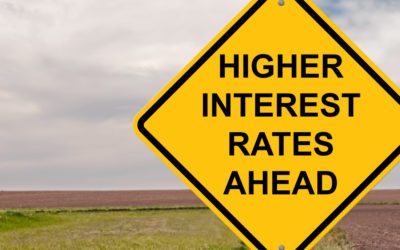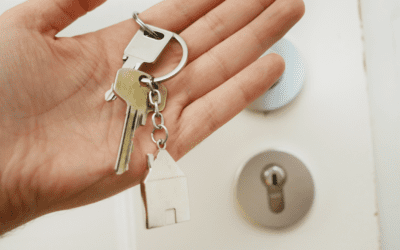The enable.me blog
The latest news, ideas and insights to help you make the most of your finances.
- All posts
- Managing Your Mortgage
- Investing
- Preparing For Retirement
- Managing Finances
- Kids & Money
- Buying Your First Home
- Women & Finances
- Company Updates
The 2026 Economic Outlook is Cautiously Optimistic: How You Can Harness It
To help you kickstart the year with financial optimism, here’s some commentary from economists and financial institutions about the year ahead.
Wrapping Up the Year: What to Read and Watch to Help You Get Ahead in 2026
With your financial progress in mind, we’ve put together a list of our top podcast episodes, webinars, blog posts, and articles from 2025.
Property Insights for 2026: Are We Finally Turning a Corner?
After two turbulent years, the property market...
Prioritising Your Goals: Tuning Out the Sales Noise
Head into the crowded arena of sales season with a cool head and a plan – so you can remain intentional with your spending.
Is Health Insurance Right for You?
Your health is one of your most valuable...
How to Navigate the Festive Season Without Breaking the Bank in 2025
December is quickly approaching - a time where...
More Than a Dress: Helping Women Gain Financial Freedom
AdviceFirst and enable.me are proud to support...
From Ground Zero to Financial Confidence: Caroline’s Story
Sometimes, you can be doing everything right...
Stay Alert to Social Media and Digital Financial Scams
Building a financially secure future isn’t just...
From Floating to Flying: How Challen Turned Her Finances Around
At enable.me, one of the biggest myths we hear...
Walking the talk: How former enable.me coach achieved his early retirement dream
Early retirement might seem like a luxury...
Single and Sorted: Doug’s Path to Financial Security
A courageous career climber, sophisticated...
Client Mortgage Success Stories with enable.me
Everyone's financial journey is unique, but the...
Options if You’re Struggling with Your Mortgage
Options if You’re Struggling with Your Mortgage ...
A strategic approach to paying off your mortgage faster
Learn why it’s important you take a strategic approach to paying off your mortgage faster.
4 things you can do if you’re worried about high mortgage rates
It’s been a while since mortgage interest rates were this high. If it’s starting to stress you out, here’s what you can do.
How you can use your mortgage debt to grow your wealth
Think your mortgage is just a drain on your finances? Think again. With a few clever hacks, your mortgage can become a tool for growing your wealth. Learn how.
3 things that can impact your ability to settle, and how to mitigate them
When buying a new build there may be a lag between going unconditional and settlement. Which opens you up to risks that could impede your ability to settle. Here’s how you can mitigate any that may crop up.
Is it worth locking in my mortgage for a 5yr term?
With mortgage rates changing regularly, and continue instability, you may be wondering how long to refix for. As banks lower their 5-year rates, are these actually a good deal?
Here’s why you shouldn’t freak out in the face of rising interest rates
While there’s plenty of doom and gloom about the New Zealand economy, there are still things to be positive about. Find out what they are from Hannah McQueen.
Tips for creating financial tailwinds when facing economic headwinds
“The most important trump card you have when it comes to trying to foster and cultivate financial success is forward momentum.” Here’s how you can create that forward momentum for yourself.
Why fixing your mortgage on a longer term might not be the best idea
Learn why fixing your mortgage rate for 3 years or more might seem like the safer move, but could actually cost you more on your mortgage in the long run.
How to manage high mortgage interest rates and get ahead
After a year of gradual increases to the OCR in a bid to combat inflation, as we battle the rising cost of living, many of us will also be battling the rising cost of our mortgages.
Making sense of the Mortgage Market – with JB and Hannah McQueen
Unless the housing market and mortgages is your bread and butter – like it is for John Bolton (more commonly known as JB) from Squirrel Mortgages – the mortgage market can be a bit of a minefield, especially now as the economy is having a bit of a ‘moment.’
Property Insights for 2026: Are We Finally Turning a Corner?
After two turbulent years, the property market...
Walking the talk: How former enable.me coach achieved his early retirement dream
Early retirement might seem like a luxury...
Economic turmoil – Why most of us will make it through ok
If you’ve been following the news lately, you...
Is now a good time to sell your shares portfolio?
As Kiwis we’re not huge fans of asking for help – especially when it comes to our finances. The problem is that the financial world is complicated…
New Build vs Existing – which one’s better as an investment?
New build vs existing when it comes to investment property? Why is it a question, and which one should you choose. We dig into the details >
Using property investment as a way to help your kids
Parents naturally want to help their kids & the first thing that likely comes to mind is cash. But is that the best option, or is there a better alternative?
Why ‘Is now the right time to buy an investment property?’ is the wrong question
If you’ve ever asked, ‘Is now a good time to buy an investment property?’, you may be asking the wrong question. Here’s why.
An introduction to managed funds and how they can help you grow your wealth
Been hearing about managed funds and wondering what all the fuss is about? As more Kiwis dip their toes into this investment option, here’s what you need to know.
How you can use your mortgage debt to grow your wealth
Think your mortgage is just a drain on your finances? Think again. With a few clever hacks, your mortgage can become a tool for growing your wealth. Learn how.
Times are changing. Is it time to re-evaluate your investment property?
Property investment is a key part of many Kiwis’ plans to grow wealth. But with a constantly changing environment, the traditionally passive approach may no longer work.
3 things that can impact your ability to settle, and how to mitigate them
When buying a new build there may be a lag between going unconditional and settlement. Which opens you up to risks that could impede your ability to settle. Here’s how you can mitigate any that may crop up.
Own a rental property? Here’s how to prepare for tax deductibility changes
Find out what the upcoming tax deductibility changes mean for your rental property.
From Ground Zero to Financial Confidence: Caroline’s Story
Sometimes, you can be doing everything right...
Walking the talk: How former enable.me coach achieved his early retirement dream
Early retirement might seem like a luxury...
Why it’s never too soon to plan for your dream retirement
Think it’s too soon to start planning for your dream retirement? Here are reasons why It’s never too early or too late to get a plan in place.
Why it’s worth being more ambitious with your retirement
Retirement isn’t something to leave to chance and it’s worth being a bit more ambitious when it comes to your retirement savings. Here’s why.
Give yourself the freedom to spend your money in your retirement
If you’ve ever been a sleepwalker, you’ll be familiar with the unsettling feeling of waking up somewhere you didn’t expect to be, wondering just how you got there and how to get back to bed safely. That’s something the Te Ara Ahunga Ora Retirement Commission wants those heading into retirement to avoid.
Why good retirement planning isn’t just about how much money you’ll have
Discover why planning for retirement includes knowing how you’ll build your wealth to have enough AND what you’ll do with that money once you retire.
August Money Chats Wrap-up: Here’s what you may have missed
In our recent Money Chats series, we touched on some grunty topics. Topics based on life events that really required a shift in your mindset as to how you manage your money. Here’s what we learned.
How to live the retirement of your dreams
Do you know how much you’ll need to live the retirement of your dreams? Here’s how to know how much you’ll need and make sure you have enough when you retire.
Reverse Mortgages & Retirement – What You Need to Know.
Paying off your mortgage is a key part of...
Kill Your Mortgage and Sort Your Retirement
Get serious about your money, pay off your...
Why you need to provision for your own retirement
The retirement age – or more accurately, the age...
The 2026 Economic Outlook is Cautiously Optimistic: How You Can Harness It
To help you kickstart the year with financial optimism, here’s some commentary from economists and financial institutions about the year ahead.
Wrapping Up the Year: What to Read and Watch to Help You Get Ahead in 2026
With your financial progress in mind, we’ve put together a list of our top podcast episodes, webinars, blog posts, and articles from 2025.
Prioritising Your Goals: Tuning Out the Sales Noise
Head into the crowded arena of sales season with a cool head and a plan – so you can remain intentional with your spending.
Is Health Insurance Right for You?
Your health is one of your most valuable...
How to Navigate the Festive Season Without Breaking the Bank in 2025
December is quickly approaching - a time where...
From Ground Zero to Financial Confidence: Caroline’s Story
Sometimes, you can be doing everything right...
Stay Alert to Social Media and Digital Financial Scams
Building a financially secure future isn’t just...
From Floating to Flying: How Challen Turned Her Finances Around
At enable.me, one of the biggest myths we hear...
Walking the talk: How former enable.me coach achieved his early retirement dream
Early retirement might seem like a luxury...
Single and Sorted: Doug’s Path to Financial Security
A courageous career climber, sophisticated...
Overcoming the ‘singles tax’
Being single can sometimes cost you more. ...
Economic turmoil – Why most of us will make it through ok
If you’ve been following the news lately, you...
August Money Chats Wrap-up: Here’s what you may have missed
In our recent Money Chats series, we touched on some grunty topics. Topics based on life events that really required a shift in your mindset as to how you manage your money. Here’s what we learned.
Are you setting your kids up for financial success?
Have you ever wondered what lesson you’re...
Why So Many Millennials Are Financially Frustrated
Teens leave home or head off to university full...
Why ‘Delay Your Gratification’ Is Outdated Financial Advice for Today’s Youth
If you browse the internet, a google search will...
What you need to tell your daughters about money – By Financial Advisor & enable.me founder, Hannah McQueen
The odds are still stacked against women...
Single and Sorted: Doug’s Path to Financial Security
A courageous career climber, sophisticated...
Client Mortgage Success Stories with enable.me
Everyone's financial journey is unique, but the...
The 3 key Things You Should Know About Property Cycles
If you’re following the news, or even just popping your nose in now and again, the headlines can feel startling. How the property cycle impacts you depends on whether you’re looking to buy, sell, or hold.
The Top 3 Things First Home Buyers Should Consider in 2022
If you’ve been hearing reports that the housing...
A Foot on the Property Ladder: Tips for Getting Into the Property Market Faster
Updated 30.08.2023 It won’t be news to you that...
To buy, or not to buy? That is the question – Hannah McQueen explains
It's often touted that paying rent is the same...
More Than a Dress: Helping Women Gain Financial Freedom
AdviceFirst and enable.me are proud to support...
“Buried Treasure”: Financial Adviser Emily Owens Shares Impact of Dress for Success
Walking through the fully stocked shelves of the...
Let’s close the confidence gap to help close the gender wealth gap
There are a few factors that contribute to the gender wealth gap. And a significant piece of that puzzle is the confidence gap. We explore how that can change.
Serious about your romance? Then it’s time to talk about money.
You’re in love! You cannot imagine life without...
3 ways to protect your financial future during a divorce
Divorce rates are going up, and it’s possible...
Bridging the gender pay gap: Have you considered asking for a raise?
Last week we covered Why women need to be...
Why women need to be more proactive about investing money
When it comes to finances, women are often stuck...
Why We Need To Empower Women To Take Charge of Their Finances – Financial Adviser Hannah McQueen
Money Week this year is encouraging people to...
Wrapping Up the Year: What to Read and Watch to Help You Get Ahead in 2026
With your financial progress in mind, we’ve put together a list of our top podcast episodes, webinars, blog posts, and articles from 2025.
More Than a Dress: Helping Women Gain Financial Freedom
AdviceFirst and enable.me are proud to support...
“Buried Treasure”: Financial Adviser Emily Owens Shares Impact of Dress for Success
Walking through the fully stocked shelves of the...
Two of NZ’s Leading Financial Advisory Firms To Merge
Leading financial advice company ‘AdviceFirst’...




















































